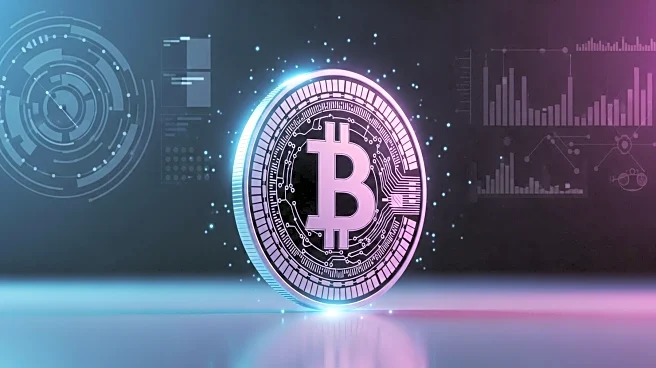What is the story about?
What's Happening?
A report by Accountable.US has accused President Trump’s World Liberty Financial crypto venture of selling tokens to entities linked to North Korea, Iran, and other sanctioned platforms. The report, titled 'American Sell-Out,' highlights transactions that raise national security concerns, including a $10,000 purchase by a trader associated with the North Korean Lazarus Group. The venture reportedly sold tokens to users involved with Iran's largest crypto exchange and a Russian sanctions evasion tool. The report also notes that World Liberty Financial sold tokens to users who previously used Tornado Cash, a service known for laundering illicit assets. Despite these concerns, the company only blacklisted a few high-risk accounts months after the sales.
Why It's Important?
The allegations against Trump’s crypto venture could have significant implications for U.S. national security and the integrity of financial markets. The involvement of entities linked to sanctioned countries like North Korea and Iran suggests potential breaches of international sanctions and raises questions about the oversight of digital asset transactions. The report's findings could lead to increased scrutiny of crypto ventures and their compliance with U.S. regulations. Additionally, the situation underscores the challenges of regulating the rapidly evolving cryptocurrency market, where anonymity and cross-border transactions complicate enforcement efforts.
What's Next?
The report has prompted calls for a congressional investigation into the foreign influence channels and the safeguards in place to prevent conflicts of interest involving digital assets. Senator Elizabeth Warren has already demanded answers from the Trump administration regarding the security implications of these transactions. The outcome of any investigations could lead to stricter regulations on cryptocurrency transactions and increased pressure on crypto ventures to enhance their compliance measures.
Beyond the Headlines
The situation highlights the ethical and legal challenges of balancing innovation in the digital asset sector with national security concerns. The potential for cryptocurrencies to be used for illicit activities by foreign adversaries raises questions about the responsibilities of crypto ventures in monitoring and reporting suspicious transactions. The case also illustrates the broader geopolitical implications of digital currencies, as they can be leveraged by state and non-state actors to circumvent traditional financial systems.
















